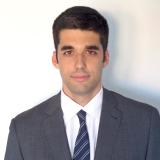Julio Crego
-

Julio Crego
Assistant professor at the Department of Finance‘I believe that any question is relevant for society, either directly, or as a stepping stone for future questions and answers.’
Julio Crego have been awarded an NWO Veni Grant to further elaborate their research ideas during a period of three years. Crego’s project is titled “Unveiling what your trading counterparty might know”.
What is the main goal of your research?
Prices of assets, for instance, the price of a stock, provide information about the value of the asset and the future cash flows that the asset will provide. This information reflected in prices comes from public announcements, such as annual reports, and private information, like the one held by directors or managers. My research aims at understanding what is this private information about and how it interacts with public information.
How does your research contribute to societal problems?
Investors with private information reveal it through their trades at the expense of the rest of the investors, who lose money against them. At the same time, if we forbid privately informed investors to trade, the information they hold might never be revealed. This tradeoff between more informative prices or higher adverse selection plays an important role in asset markets.
More informative prices help investors to allocate their capital to firms with better projects and lead to a better allocation of resources across firms, which eventually results in economic growth and welfare. On the other hand, higher adverse selection, not only leads to more informative prices, but also redistributes the rents from individuals who hold the information (usually wealthy individuals) towards those who do not hold the information (usually middle-class). At the same time, reducing information barriers eases the entry of lower financially educated individuals to the equity market and improves risk-sharing across investors.
What is your main motive?
Curiosity. A lot of questions for which we do not have an answer arise every day and I try to find some of the answers. I believe that any question is relevant for society, either directly, or as a stepping stone for future questions and answers. Otherwise, the question would have never arisen.
Who is your role model?
I understand academic research as teamwork in which people and institutions collaborate within and across generations. Therefore, I do not have any role models. I try to follow my colleagues to become one more gear of academia.
